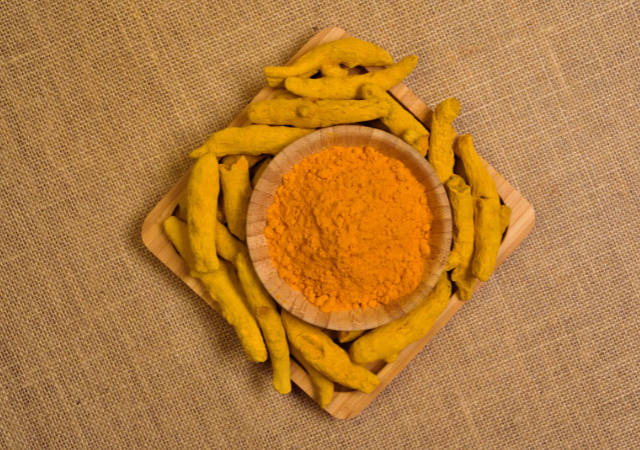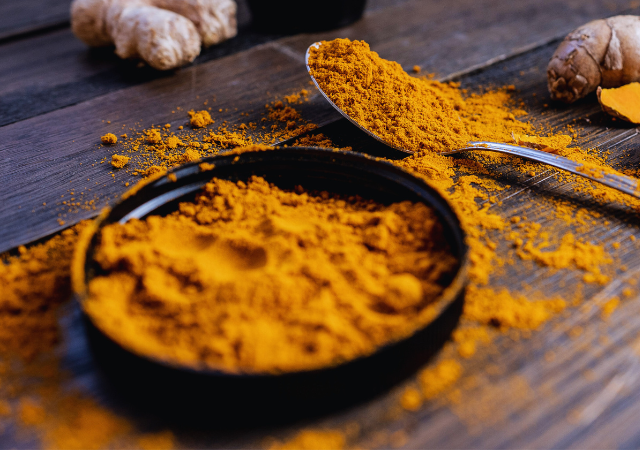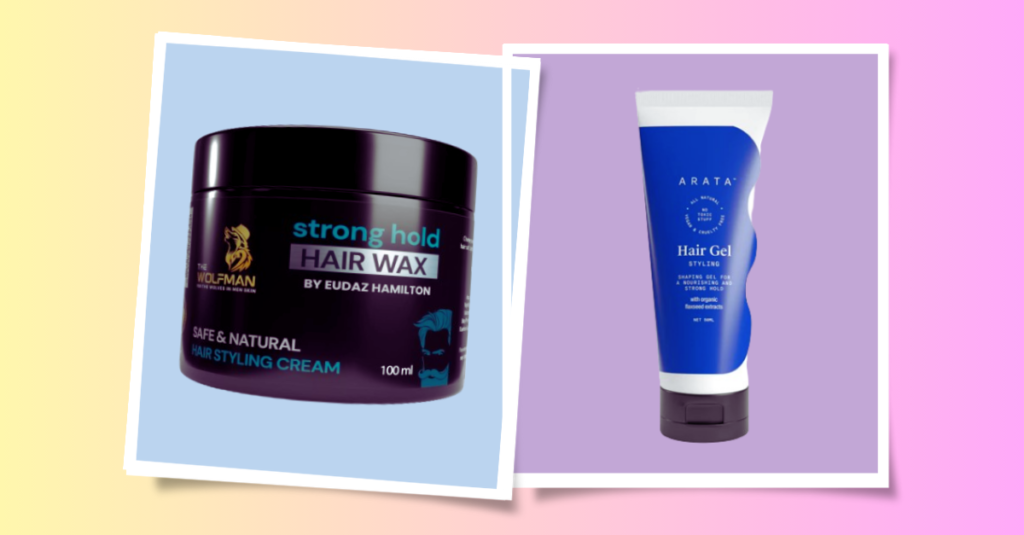How Beneficial Is Turmeric For The Face?
Introduction
The pursuit of flawless and radiant skin has been a timeless quest, prompting many to explore the rich treasure trove of natural remedies. Among the ingredients that have gained significant attention in recent years, turmeric stands out as a shining star. This vibrant and aromatic spice, commonly found in kitchens around the world, has been celebrated for its culinary and medicinal properties for centuries. However, it’s in the realm of skincare that turmeric has truly taken the spotlight.
But what is it about turmeric that makes it so captivating for those seeking healthier, more beautiful skin? In this comprehensive exploration, we dive deep into the world of turmeric and its potential benefits for the face. We’ll uncover the science behind its skin-friendly properties, offer practical guidance on how to incorporate it into your skincare routine, and address any concerns you might have about using turmeric on your face.
-
The Magic of Turmeric: Understanding Its Composition

Before we delve into the potential benefits of turmeric for the face, let’s first understand what makes this spice so remarkable. At the heart of turmeric’s allure is curcumin, a bioactive compound responsible for many of its medicinal properties. Curcumin is known for its anti-inflammatory, antioxidant, and antimicrobial properties, which have significant implications for skincare.
Anti-Inflammatory Properties: Soothing Irritated Skin
One of the standout features of curcumin is its potent anti-inflammatory activity. Inflammation is a common underlying factor in various skin conditions, including acne, rosacea, and eczema. By reducing inflammation, curcumin may help alleviate the redness, swelling, and discomfort associated with these conditions.
Antioxidant Effects: Combatting Signs of Aging
Turmeric’s antioxidant properties are also worth noting. Oxidative stress, caused by an imbalance between free radicals and antioxidants in the body, can lead to premature aging and skin damage. The antioxidants in turmeric can help neutralize free radicals, potentially slowing down the aging process and reducing the appearance of fine lines and wrinkles.
Antimicrobial Power: A Natural Solution for Acne
Acne, a common skin woe, often involves the proliferation of bacteria on the skin’s surface. Curcumin’s antimicrobial properties can inhibit the growth of these bacteria, making turmeric a potential natural remedy for acne. Its anti-inflammatory effects may also help calm the redness and swelling associated with pimples.
-
DIY Turmeric Face Masks: A World of Possibilities

With turmeric’s promising skin-friendly properties in mind, many people have turned to DIY face masks and treatments to harness its benefits. Here are some popular turmeric-based face mask recipes for various skin concerns:
- Turmeric and Yogurt Mask for Radiance
- Mix 1 teaspoon of turmeric powder with 2 tablespoons of yogurt.
- Apply the mixture to your face and leave it on for 15-20 minutes.
- Rinse with warm water.
- Turmeric and Honey Mask for Acne
- Combine 1 teaspoon of turmeric powder with 1 tablespoon of honey.
- Apply the mixture to acne-prone areas or the entire face.
- Leave it on for 15-20 minutes, then rinse off.
- Turmeric and Aloe Vera Mask for Sensitive Skin
- Blend 1 teaspoon of turmeric powder with 1 tablespoon of aloe vera gel.
- Apply the mixture to your face and leave it on for 10-15 minutes.
- Gently rinse with cool water.
- Turmeric and Besan (Chickpea Flour) Mask for Exfoliation
- Mix 1 teaspoon of turmeric powder with 2 tablespoons of besan and a bit of water to make a paste.
- Apply the paste to your face, gently scrubbing in circular motions.
- Rinse off once it dries, and enjoy smoother skin.
Remember that turmeric can stain the skin temporarily, so be cautious and avoid using it on special occasions. Additionally, it’s a good practice to perform a patch test on a small area of your skin before applying any new skincare product or mask to ensure you don’t experience any adverse reactions.
-
The Science Behind Turmeric’s Skincare Benefits

The use of turmeric for skincare is not merely a trend; it’s grounded in scientific research. Numerous studies have explored the potential benefits of curcumin, the active compound in turmeric, for various skin conditions.
- Acne: A study published in the Journal of Clinical and Aesthetic Dermatology in 2013 examined the effectiveness of a curcumin gel in treating acne. The results showed a significant reduction in acne lesions and redness, supporting the use of turmeric for acne-prone skin.
- Psoriasis: Research published in the journal BMC Complementary and Alternative Medicine in 2015 explored the anti-inflammatory properties of curcumin in psoriasis treatment. The study found that curcumin supplementation led to improvements in psoriasis symptoms, including redness and scaling.
- Skin Aging: A review published in the journal BioFactors in 2013 discussed the potential of curcumin to combat skin aging. It highlighted curcumin’s antioxidant properties and its ability to reduce oxidative stress, which contributes to skin aging.
These studies, among others, provide valuable insights into the potential of turmeric for improving various skin conditions. While research is ongoing, the existing findings suggest that turmeric holds promise as a natural and effective skincare ingredient.
-
Safety Precautions: Turmeric on the Face

While turmeric holds promise as a skincare ingredient, it’s essential to exercise caution when using it on your face. Here are some safety precautions to keep in mind:
- Patch Test: Before applying a turmeric-based mask to your entire face, perform a patch test on a small area of skin. This helps you determine if you have any sensitivity or allergy to turmeric.
- Staining: Turmeric can temporarily stain the skin, leaving a yellowish tint. Avoid using it before important events or outings where the staining may be noticeable.
- Dosage: When creating DIY masks, use turmeric in moderation. Excessive amounts can be harsh on the skin and may cause irritation.
- Consult a Dermatologist: If you have a pre-existing skin condition or are unsure about using turmeric on your face, consult a dermatologist before incorporating it into your skincare routine.
-
Alternatives and Complementary Ingredients
Turmeric’s skincare benefits are impressive, but it’s not the only natural ingredient that can enhance your skincare regimen. Consider combining turmeric with other complementary ingredients for synergistic effects:
- Honey: Honey is a natural humectant and has antibacterial properties, making it an excellent addition to turmeric masks for acne-prone skin.
- Aloe Vera: Aloe vera is known for its soothing and hydrating properties. Mixing it with turmeric can help reduce any potential irritation.
- Yogurt: Yogurt contains lactic acid, which can exfoliate the skin gently. Combining yogurt with turmeric can help brighten and rejuvenate the complexion.
- Besan (Chickpea Flour): Besan is an excellent natural exfoliant that pairs well with turmeric in masks, helping to remove dead skin cells and reveal a fresh glow.
Conclusion
In the pursuit of healthier, more radiant skin, turmeric emerges as a powerful ally. Backed by science and celebrated by those who’ve witnessed its benefits firsthand, turmeric’s potential for skincare is undeniable. Its anti-inflammatory, antioxidant, and antimicrobial properties make it a valuable addition to your skincare routine.
As you embark on your journey with turmeric, remember the importance of responsible usage. Perform patch tests, use turmeric masks in moderation, and consult a dermatologist if you have any concerns about its suitability for your skin type.
Ultimately, turmeric offers a natural and holistic approach to skincare, allowing you to embrace the golden glow of health and beauty. Whether you’re seeking to soothe irritated skin, combat signs of aging, or simply pamper yourself with a DIY spa day, turmeric may hold the key to unlocking the beauty potential of your face. So, go ahead, explore the world of turmeric skincare, and discover the radiant transformation it can offer.

My name is Rohit Vagh and I’m a content writer specializing in fashion and lifestyle. I have three years of experience in this field and have written various articles. My writing style is creative and engaging, and I strive to create content that resonates with my readers. I have a deep passion for fashion and am constantly researching the latest trends and styles to make sure my readers are up to date. I’m excited to continue my career in blogging, and I’m always looking for new opportunities in the fashion and lifestyle space.





